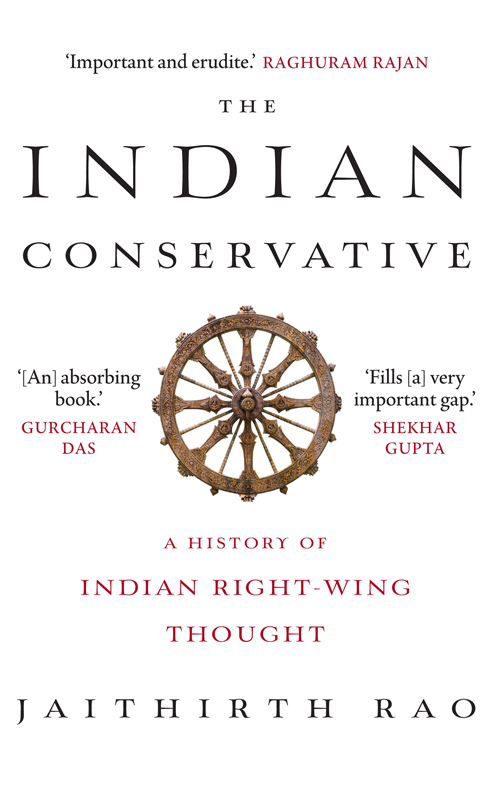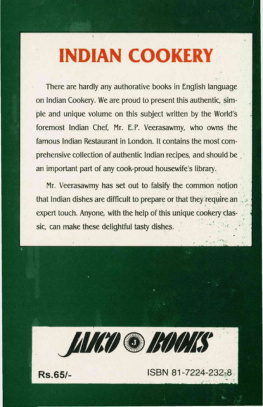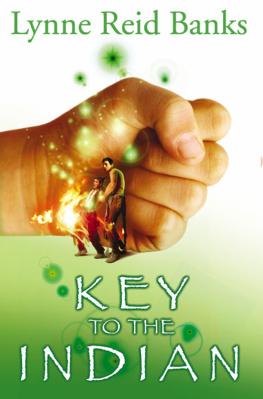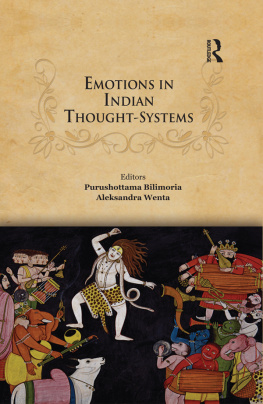Jaithirth Rao - The Indian Conservative: A History of Indian Right-wing Thought
Here you can read online Jaithirth Rao - The Indian Conservative: A History of Indian Right-wing Thought full text of the book (entire story) in english for free. Download pdf and epub, get meaning, cover and reviews about this ebook. genre: Politics. Description of the work, (preface) as well as reviews are available. Best literature library LitArk.com created for fans of good reading and offers a wide selection of genres:
Romance novel
Science fiction
Adventure
Detective
Science
History
Home and family
Prose
Art
Politics
Computer
Non-fiction
Religion
Business
Children
Humor
Choose a favorite category and find really read worthwhile books. Enjoy immersion in the world of imagination, feel the emotions of the characters or learn something new for yourself, make an fascinating discovery.

- Book:The Indian Conservative: A History of Indian Right-wing Thought
- Author:
- Genre:
- Rating:5 / 5
- Favourites:Add to favourites
- Your mark:
- 100
- 1
- 2
- 3
- 4
- 5
The Indian Conservative: A History of Indian Right-wing Thought: summary, description and annotation
We offer to read an annotation, description, summary or preface (depends on what the author of the book "The Indian Conservative: A History of Indian Right-wing Thought" wrote himself). If you haven't found the necessary information about the book — write in the comments, we will try to find it.
Jaithirth Rao: author's other books
Who wrote The Indian Conservative: A History of Indian Right-wing Thought? Find out the surname, the name of the author of the book and a list of all author's works by series.
The Indian Conservative: A History of Indian Right-wing Thought — read online for free the complete book (whole text) full work
Below is the text of the book, divided by pages. System saving the place of the last page read, allows you to conveniently read the book "The Indian Conservative: A History of Indian Right-wing Thought" online for free, without having to search again every time where you left off. Put a bookmark, and you can go to the page where you finished reading at any time.
Font size:
Interval:
Bookmark:

The Indian Conservative
Praise for the Book
In The Indian Conservative Jaithirth Rao makes an engaging case for why conservatism in which he includes moderate Hindu Nationalism is necessary for India. This is not a book that strives for balance. Rao is opinionated, with favourites in the pantheon of Indian leaders and intellectuals, as well as pet hates. It is, however, an important and erudite contribution to the debate as we ponder the future of India.
Raghuram Rajan
Ever since the British came, thinking Indians have been questioning how to modernize our tradition. Indians are conservative by nature, but can we tap into our rich roots to create a modern, conservative political identity? And can we achieve this without dividing ourselves or adopting majoritarian positions? Are there mystic chords of memory that bind us and make us a nation? Read this absorbing book for answers. Even if you disagree, it will make you think.
Gurcharan Das
Classical Indian Conservatism has been a political and intellectual orphan for nearly five decades now. It has been defined purely in religious terms, following the lazy new definitions of the Left and the Right. Jaithirth Raos book fills that very important gap and rekindles a debate dormant for too long. His is among the very few minds today that still combine modern rationalism with ideological conservatism and free economic thought. He is making a civil argument that the Right need not be synonymous with evil.
Shekhar Gupta
The Indian
Conservative
A History of
Indian Right-Wing Thought
Jaithirth Rao

JUGGERNAUT BOOKS
KS House, 118 Shahpur Jat, New Delhi 110049, India
First published by Juggernaut Books 2019
Copyright Jaithirth Rao 2019
10 9 8 7 6 5 4 3 2 1
The views and opinions expressed in this book are the authors own. The facts contained herein were reported to be true as on the date of publication by the author to the publishers of the book, and the publishers are not in any way liable for their accuracy or veracity.
P-ISBN: 9789353450625
E-ISBN: 9789353450632
All rights reserved. No part of this publication may be reproduced, transmitted, or stored in a retrieval system in any form or by any means without the written permission of the publisher.
Typeset in Adobe Caslon Pro by R. Ajith Kumar, Noida
Printed at Thomson Press India Ltd
The Conservative is put on this earth in order to conserve the best part of his or her inheritance. In that spirit, I dedicate this book to my grandfather Coimbatore R. Raghavendra Rao, who was a lifelong scholar and aficionado of the divine Tirukkural, which has to be one of our finer legacies, worth preserving and learning from
Contents
There is an ancient tradition of right-wing thought in India, which I call conservatism. The BJP and the RSS, popularly seen as synonymous with the right-wing point of view, are offshoots of this school of thought, and though there are many similarities, there are many divergences too. I have used the word conservatism throughout the book so as not to confuse the reader.
The objective of this book is to explore and position the philosophical underpinnings of modern Indian conservatism, as well as to present contemporary courses of action in five distinct spheres: the economic, the cultural, the social, the political and the aesthetic. While no such attempt can possibly cover everything comprehensively, here is an attempt at a wide-ranging examination. Indian conservatism has received scant attention from academia and rarely gets media attention except in its most caricatured form. Its relationship to indigenous intellectual sources going back to antiquity and to Western traditions that are derived from the work of the eighteenth-century English philosopher and public figure Edmund Burke have rarely been seen as worth analysing or understanding, let alone celebrating.
Intellectual discourse in India, especially from the second half of the twentieth century and into the current century, has been dominated by paradigms borrowed from the metropolitan centres of the West the grammars used have been Marxist, Freudian, postmodern and so on, with India contributing a subaltern historical school within the postmodern dialogues. This has also been the case with intellectual discourse about India in Western academic and journalistic circles.
A certain amount of political discourse, not fully acknowledged as intellectual by academia, has had a particular Hindu nationalist flavour associated with it. This point of view has so far remained on the peripheries of academic respectability, within the entrenched cloisters of universities in India and in the West. Any attempt at seriously studying conservatism, let alone contributing to an ongoing intellectual conversation with it, has been avoided simply by using the assumption that at least in the political sphere, Indian conservatism is nothing but a Siamese twin attached to what is externally described as Hindu nationalism.
This attempt at defining conservatism by its intellectual adversaries ensconced in powerful academic positions and in so attempting, also limiting its appeal has, I believe, not been constructive for the broader development of healthy, mutually respectful points of view. Students and the general public end up as losers if the various brilliant strands and schools of conservative thought are excluded from study and contemplation.
I would reject the position that Hindu nationalism is not a respectable political doctrine worth studying. However, the fundamental argument that keeps recurring is whether Hindu nationalism is a subset within the broad tent of Indian conservatism or whether Indian conservatism and Hindu nationalism have some elements that overlap and others that do not. The creative tension around this argument is particularly highlighted when we confront extreme and violent elements in the Hindu nationalist fold. While moderate Hindu nationalism, which emphasizes Indian cultural unities, can be seen as a legitimate movement within a broader conservative umbrella, Hindu extremism remains more problematic.

Conservatism is a school of philosophy which is not characterized by rigid contours or definitions. It believes that human beings as individuals and as communities have evolved over time, developing laws, institutions, cultures, norms and associations. This evolutionary process undoubtedly contributes to practical utility. The process itself is one of trial and error. It is grounded in a deep sense of empiricism, focused heavily on what works on the ground and what is practical. It is suspicious, even dismissive, of utopian fantasies, and the point of view repeatedly asserted is that human beings seeking utopias are likely to end up in dystopias. In fact, conservatives would take the position that perfection cannot be achieved by individuals or societies. We must necessarily be satisfied with modest improvements, but improvements nevertheless, not regressions. The Scottish philosopher David Hume articulated this sense of empiricism and combined it with a consistent anti-utopian position. He and his compatriot Adam Smith were great believers in the ongoing improvement of human society, ideas which the contemporary philosophers Steven Pinker and Yuval Noah Harari have subscribed to.
The conservative position is that improvements have to be gradual, and preferably peaceful. Sudden, violent attempts at so-called improvements are viewed with suspicion, because they are likely to backfire, destroy much of the good in the past and the present, and deliver a situation substantially worse than the earlier one. A philosophical approach involving the acceptance of the inevitability of violence is also resented by conservatives, on both moral and practical grounds. Conservatives have as their primary concern the freedom and well-being of individuals. Freely formed and voluntary, organic associative institutions are viewed positively while state-sponsored collectives are often viewed as inimical to individual interests.
Font size:
Interval:
Bookmark:
Similar books «The Indian Conservative: A History of Indian Right-wing Thought»
Look at similar books to The Indian Conservative: A History of Indian Right-wing Thought. We have selected literature similar in name and meaning in the hope of providing readers with more options to find new, interesting, not yet read works.
Discussion, reviews of the book The Indian Conservative: A History of Indian Right-wing Thought and just readers' own opinions. Leave your comments, write what you think about the work, its meaning or the main characters. Specify what exactly you liked and what you didn't like, and why you think so.




